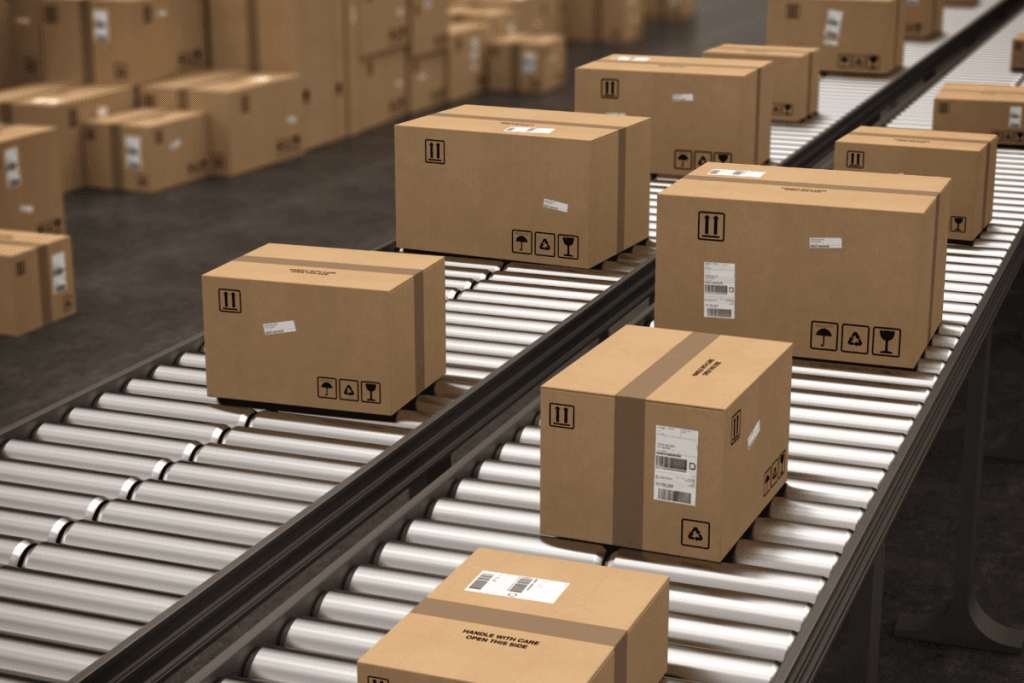Clinic purchasing decisions often start with a simple question: “Which option is better value?” For many practices, wholesale medical products look like the obvious answer. Yet “value” is rarely the invoice line alone. It is the sum of continuity, documentation, staff time, and clinical readiness.
Local retail or same-day pickup can still play a role. It can cover a short-term gap or a last-minute need. The trade-off is often weaker traceability, inconsistent pack sizes, and less predictable replenishment.
Key Takeaways
- Total cost includes waste, time, and compliance work
- Match sourcing channel to item criticality and usage rate
- Require lot, expiry, and product identifiers consistently
- Standardize receiving, storage, and reconciliation workflows
- Use local buys for exceptions, not core stock
MedWholesaleSupplies focuses on supply access for licensed healthcare professionals.
How to Evaluate Wholesale Medical Products vs Local Retail
Start by defining what “better value” means for your setting. For some clinics, the priority is reducing stockouts. For others, it is consistent documentation for audits. A third group cares most about standardizing brands and SKUs (stock keeping units) across sites.
Separate purchases into three buckets. First are “can’t-cancel” essentials used daily. Second are intermittent procedure supplies that still need strong controls. Third are low-risk items you can flex locally when needed. This segmentation prevents overbuilding a single channel that does not fit every category.
How to compare options in practice
Use a repeatable comparison method, not an impression. Build a short scorecard that your team can reuse. Include pack size, lead time expectations, return policies, and documentation support. Add a field for “clinical disruption risk” if the item is missing. This helps you defend choices internally, especially when clinicians request a specific brand.
For a step-by-step procurement approach, see How To Buy Medical Supplies Wholesale. If you are organizing your catalog structure, the broad Uncategorized Catalog view can help you map items into clearer internal categories.
Cost Drivers Beyond Sticker Price
Unit price is visible, but friction costs are usually hidden. Receiving labor rises when shipments arrive in mixed formats. Reconciliation time increases when packaging lacks consistent identifiers. Returns and credits also consume staff time, especially when a team must explain why an item cannot be used.
Waste is a common cost driver. It comes from over-ordering, short-dated inventory, and opened packs that do not match actual usage. A case of consumables sourced as wholesale medical products can be economical only if your par levels (minimum on-hand targets) are accurate. Expiry-driven write-offs can erase a favorable unit cost.
Why it matters: Procurement savings disappear quickly when stock becomes unusable or undocumented.
Common cost pitfalls to watch
- Overbuying “deal” pack sizes
- Ignoring expiry date alignment
- Mixing similar SKUs across vendors
- Underestimating receiving labor
- Not tracking return root causes
When a local purchase makes sense, define it as an exception path. Use it for immediate needs, not routine replenishment. Retail runs can also be useful for non-sterile, non-critical office items when documentation requirements are minimal. If your team is tempted by consumer marketplaces due to convenience, document the rationale and risks. Traceability standards for healthcare procurement can differ from general e-commerce expectations.
Quality, Traceability, and Compliance Checks
Quality checks are not only for drugs. Devices, needles, cannulas, and single-use accessories can carry patient safety implications. Your receiving process should verify what arrived, where it came from, and whether it is suitable for clinical use. The aim is consistent records, not perfection.
Products are sourced from vetted distribution partners to support authenticity checks.
Drug vs device traceability basics
For prescription drugs, documentation expectations can include transaction information and lot-level traceability, depending on jurisdiction and product type. For medical devices, unique device identification (UDI) is a common framework that supports recall management and inventory accuracy. For both categories, lot number and expiration date are practical minimums for your internal logs. If you cannot reliably record those fields, your recall response becomes slow and manual.
If you are bringing in wholesale medical products, insist on consistent labeling and identifiers at receiving. Confirm that secondary packaging is intact and not relabeled. Align purchasing with your clinic’s policy for quarantining suspect goods. Policies vary by organization and regulator, so document what your team does and why.
Quick tip: Use one standardized receiving form for drugs, devices, and sterile disposables.
For aesthetic injectables and related devices, quality discussions often focus on sourcing standards and injection safety. You can review operational considerations in Wholesale Fillers Sourcing Standards and clinic-side technique and safety context in Safety First Protocols. These topics matter because documentation gaps can create downstream clinical and legal exposure, even when the product itself is appropriate.
Clinic Workflow Snapshot and Documentation Checklist
Procurement becomes easier when the workflow is explicit. You want every shipment to pass through the same checkpoints. That reduces variation between staff members and locations. It also supports faster investigations when something does not match the packing slip.
Standardizing receiving for wholesale medical products is often where value is gained or lost. When the workflow is stable, inventory counts improve and urgent “gap runs” decrease. Plan staffing around receiving windows that align with your US distribution footprint.
Workflow snapshot (high level)
- Verify supplier and invoice details
- Inspect packaging integrity and labeling
- Document lot, expiry, and identifiers
- Receive into inventory system
- Store by temperature and segregation rules
- Issue to clinical areas with sign-out
- Record usage for charge and traceability
Documentation checklist for procurement teams
- Vendor credentialing file
- Item master with SKUs
- Lot and expiration log
- Return and discrepancy record
- Recall response steps
- Staff training acknowledgments
Credential checks may be required before account access is approved.
When you need needles and access devices, keep selection and documentation together. Using a single reference list reduces errors. For category-level guidance, see Cannulas And Needles Guide.
Category-Specific Considerations for Mixed Clinic Inventories
Most clinics carry a mixed inventory. Some items are high-velocity consumables. Others are capital equipment or durable devices. A third set supports elective procedures with narrow brand preferences. Each group needs a different sourcing strategy and stocking approach.
In procedure areas, wholesale medical products can simplify standardization. It can also reduce variation in packaging and documentation. The benefit is operational, not cosmetic. You still need a clear item master, a receiving routine, and internal controls.
High-velocity consumables and first aid basics
Common consumables include gloves, gauze, dressings, alcohol prep pads, syringes, and skin antiseptics. These items are usually predictable in usage, making them good candidates for standing orders and par levels. Many practices also maintain a basic clinic first aid kit for staff and on-site incidents. A “what are 10 items in a first aid kit” list often includes adhesive bandages, sterile gauze, tape, antiseptic wipes, disposable gloves, scissors, tweezers, a cold pack, saline for irrigation, and a CPR barrier device. Some teams extend to a 20-item list by adding burn dressings, eye pads, triangular bandage, and a tourniquet per policy.
Keep first aid and emergency items separate from routine stock. Label them clearly, and monitor expirations. If you maintain a travel medicine list for outreach events, treat it as a controlled kit with check-in and check-out steps. Avoid building this list around consumer convenience alone. Build it around your clinic’s protocols and documentation expectations.
Durable medical equipment and capital items
Durable medical equipment (DME) usually has a longer lifecycle and a different risk profile. Your durable medical equipment list might include exam tables, blood pressure monitors, scales, pulse oximeters, suction devices, and sterilization support equipment, depending on services offered. Here, “value” depends on serviceability, calibration, warranty terms, and replacement part availability. Local retail can be helpful for small accessories, but core DME typically benefits from planned sourcing and consistent vendor documentation.
Before committing, confirm the documentation you will need for maintenance records. Clarify how your team will tag devices for inventory and preventive maintenance. If your organization participates in audits, ensure the purchasing record links to asset tracking. This is where procurement and biomedical workflows should align early.
Procedure-focused aesthetics (injectables and accessories)
Aesthetic practices often manage a tighter set of brands and accessories. For context on product classes and terminology, see Top Botulinum Toxin Brands and Skin Boosters Injections. If you stock a brand-name product such as Botox or a skin hydration product like Restylane Skinboosters Vital, keep your receiving documentation consistent with your broader traceability policy.
Accessories can be just as important operationally. Cannula selection affects training, stocking, and procedure setup. Examples of accessory categories include SoftFil Cannula and micro-needling style devices such as Fillmed Nanosoft Microneedles. Avoid informal substitutions when stock runs low. Instead, define approved alternates and document them in the item master.
Authoritative Sources
When your team is refining procurement controls, use primary sources to anchor definitions and documentation expectations. Regulatory and professional references help you write policies that are stable over time. They also support training, especially when new staff join or when you add new service lines.
These references can help you align your internal practices with widely used frameworks for traceability and safe use:
- FDA Drug Supply Chain Security Act (DSCSA)
- FDA Unique Device Identification (UDI) System
- CDC Injection Safety
Better value is rarely about wholesale medical products alone. It is about choosing the right channel per item, then controlling the workflow. If you want one operational next step, build a single “medical supplies list” for your clinic, then add identifiers, approved alternates, and receiving steps. That document becomes your internal source of truth and supports reliable US logistics planning.
This content is for informational purposes only and is not a substitute for professional medical advice.






